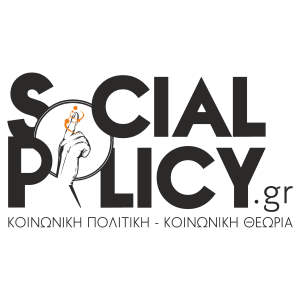Βραβείο 2021

Βραβείο 2022

Στρατηγικός συνεργάτης

Υποστηρικτές Επικοινωνίας


Abstract
Objective:
The objectives of this review were to comprehensively identify the best available qualitative evidence on parents’ and guardians’ experiences of barriers and facilitators in accessing autism spectrum disorder (ASD) diagnostic services for their children, and to develop recommendations based on the review for addressing barriers to timely diagnosis and early intervention.
Introduction:
Early identification of ASD is a priority because the best chance for improving symptoms occurs through early and intensive intervention. A definitive ASD diagnosis is often a prerequisite for children to access publicly funded services, yet obtaining a diagnosis in itself can be stressful, frustrating, and time-consuming for many families. It is essential to understand the barriers and facilitators parents and guardians face in accessing ASD diagnostic services for their children.
Inclusion criteria:
This qualitative systematic review considered studies conducted worldwide that included parents and guardians of children up to 18 years of age who had accessed or who were attempting to access ASD diagnostic services for their children.
Methods:
This review was conducted in accordance with the JBI methodology for systematic reviews of qualitative evidence. A literature search included CINAHL (EBSCOhost), CINAHL Plus (EBSCOhost), MEDLINE (EBSCOhost), APA PsycINFO (EBSCOhost), Social Services Abstracts (ProQuest), ERIC (EBSCOhost), and Embase. Gray literature sources included ProQuest Dissertations and Theses, Google Scholar, Google, OpenGrey, other online resources (government and organizational websites), and reference lists of retrieved records. No language, date, or country limits were applied to the searches. Retrieved records from the academic databases, gray literature, and reference lists of retrieved records were screened, with potentially relevant records examined in full against the inclusion criteria. Eligible studies were critically appraised for methodological quality, and those included in this review were subjected to data extraction of descriptive details and study findings relevant to the review question. Study findings were synthesized and assigned confidence scores. All reviewers agreed upon the categories and finalized synthesized findings.
Results:
The 36 included studies varied in qualitative research designs and were assessed as having high methodological quality. There were 661 eligible participants, and 55 credible and unequivocal research findings were extracted. The research findings yielded 6 categories and 3 synthesized findings with moderate confidence scores. Parents’ and guardians’ ability to access ASD diagnostic services for their children is affected by i) encountering health care providers who actively listened to and addressed parents’ and guardians’ concerns instead of dismissing them, providing a sense of support and validation; ii) facing extended waiting times and associated financial burdens, resulting in frustration and associated financial impact when delays occurred; and iii) encountering health care providers lacking specialized knowledge about ASD, contributing to parents’ and guardians’ confusion due to inaccurate or conflicting diagnoses related to ASD comorbidities.
Conclusion:
Many parents described their journey in accessing ASD assessment and diagnostic services for their children as cumbersome. Parents’ and guardians’ experiences were affected by the level of perceived support by and knowledge of health care providers; confusion surrounding inaccurate/mixed diagnoses related to ASD, lengthy delays, and systemic and contextual barriers in navigating the pathway to ASD assessment and diagnosis that included socioeconomic and cultural disparities.
Citation: Smith-Young, Joanne1,2; Pike, April1,2; Swab, Michelle2,3; Chafe, Roger4. Parents’ and guardians’ experiences of barriers and facilitators in accessing autism spectrum disorder diagnostic services for their children: a qualitative systematic review. JBI Evidence Synthesis 23(1):p 6-68, January 2025. | DOI: 10.11124/JBIES-23-00332
Open access article: https://scholarspace.manoa.hawaii.edu/server/api/core/bitstreams/bfec91c8-c2a2-4010-9cbb-af31ac5211c0/content
Abstract
Autism spectrum disorder (ASD) is a complex chronic condition, impacting the individual and their family, as they require life-long care starting at an early age. Self-management assists these individuals transition to adulthood without needing continued systematic support externally. Telehealth reduces the challenges these families experience when accessing self-management programs. However, current research on telehealth programs in this context are often aimed at early childhood or utilize a deficit-based approach to care, therefore fails to capture all aspects of self-management. This study employed a case-study approach to investigate how a clinically adopted telehealth program supports comprehensive self-management of autism. The results demonstrate the program provided self-management support through three processes: focusing on illness needs, activating resources and living with a chronic condition. The paper suggests further improvements are needed to achieve intended healthcare outcomes for the child and their families.
Citation: Supporting Self-Management for Autism Spectrum Disorder through Telehealth, (2025). Sumanasekera K., Todorova N., Mills A.Proceedings of the 58th Hawaii International Conference on System Sciences | 2025
Open access article: https://doi.org/10.1007/s40489-023-00420-3
Abstract
Individuals with autism are more likely to suffer from various physical and mental health problems and experience disparities in effectively accessing healthcare services. This review aims to identify studies that report on the experiences of autistic children, their parents/carers, and the healthcare professionals treating them; to develop an understanding of the facilitators and barriers to healthcare access in order to inform policies and practice to improve access to healthcare for autistic children in the UK.
A total of 3069 records were screened, and 24 studies were included; six quantitative, four qualitative, and fourteen mixed-methodology studies.
Professional and parental knowledge about autism, sensory issues, challenging behaviour, system-level barriers, patient-provider-parent communication issues, lack of person-centred care, stigma, and culture emerged as significant barriers to accessing healthcare for autistic children.
Families of autistic children experience several barriers to accessing healthcare. Recommendations for those planning services and clinicians are discussed.
Citation: Babalola, T., Sanguedolce, G., Dipper, L. et al. Barriers and Facilitators of
Healthcare Access for Autistic Children in the UK: a Systematic Review. Rev J
Autism Dev Disord (2024).
https://link.springer.com/article/10.1007/s10803-024-06556-3
Abstract
To assess caregiver-reported barriers and facilitators to receiving a diagnosis of Autism Spectrum Disorder (ASD) and accessing services as well as the influence of personal and cultural factors.Participants included 29 parents whose children had been diagnosed with ASD between January 2019 and November 2021 while receiving primary care at one of two urban, hospital-affiliated clinics. Semi-structured interviews and surveys were conducted between May 2022 and June 2023 in both English and Spanish. Transcripts were coded and themes developed using thematic content analysis. In the survey portion of the study, 80% of parents said the experience of getting the diagnosis was “very easy/somewhat easy,” while 28% of parents said the process of accessing autism services was “very difficult.” Four general categories emerged from the qualitative analysis: (1) experience getting the diagnosis, (2) service navigation after diagnosis, (3) need for parent advocacy, and (4) perception of condition by others. Parents generally reported positive experiences with their pediatricians, but some felt their concerns were discounted due to personal factors. The most common frustration expressed was difficulty accessing Applied Behavior Analysis therapy after a diagnosis due to long waiting lists, staff turnover and poor quality. Many parents felt that it would be helpful to have a family navigator to assist with paperwork, insurance complexities, and service access. Parents reported many challenges obtaining an autism diagnosis as well as accessing services. Widespread system change will be required to meet the needs of families equitably and effectively.
Citation: Rea, C.J., Lesch, K., Hernandez, B. et al. “I’m His Voice”: Parent Perspectives on Obtaining an Autism Diagnosis and Services and the Influence of
Personal and Cultural Factors. J Autism Dev Disord (2024). https://doi.org/10.1007/s10803-024-06556-3
https://pubmed.ncbi.nlm.nih.gov/36409392/
Abstract
This study aimed to explore experiences of support after adulthood autism diagnosis. In this mixed-methods survey study of 137 adults, we found that most common formal supports received were counselling and mental health. Common unmet support needs were sensory sensitivities and accessing other services. Cost, lack of information, and fear of not being taken seriously were common barriers. Informal support was mainly helpful for self-understanding and emotions toward diagnosis. Qualitative findings included difficulties accessing formal support, need for practical quality-of-life supports and support from autistic peers and online communities. Based on these findings, future development of supportive interventions should address unmet needs, improve access, and explore the integration of autistic peer support and online support into formal services.
Citation: Huang, Y., Arnold, S.R.C., Foley, KR. et al. Experiences of Support
Following Autism Diagnosis in Adulthood. J Autism Dev Disord 54, 518–531 (2024).
https://doi.org/10.1007/s10803-022-05811-9